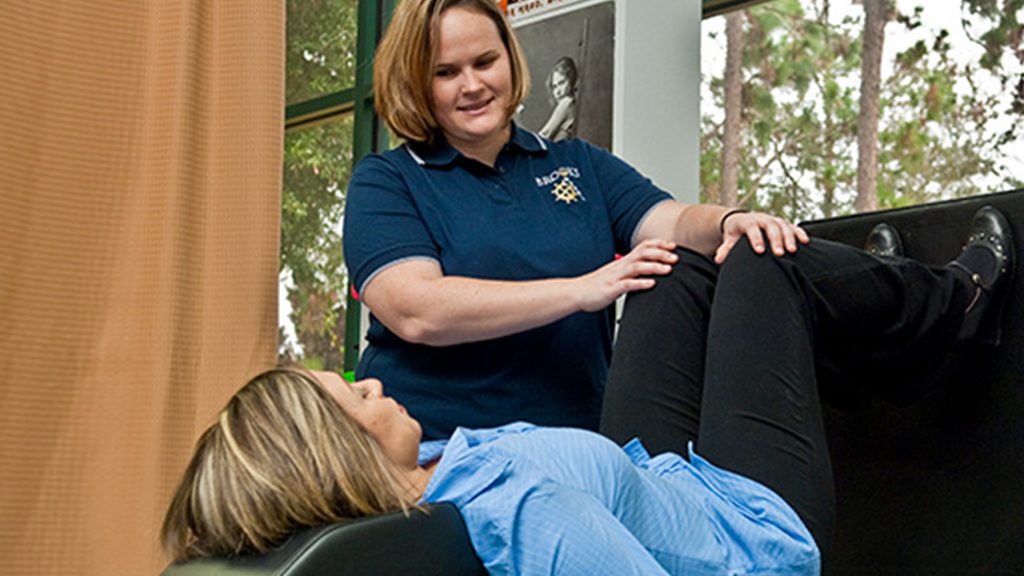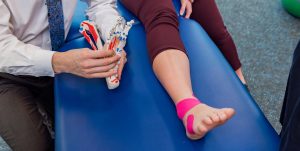What Can You Expect from Physical Therapy?

Back to physical health resource hub
Physical therapists are an important part of the healthcare system. They focus on function and restoring normal movement. For those who have had surgical procedures, a physical therapist can guide you through recovery and teach you how to return to previous activities. For the normal aches and pains, physical therapists can provide exercises that should decrease pain, as well as prevent further injury.
If you are considering physical therapy, here’s what you can expect:
1. Professionalism
Today, all physical therapists graduate with a doctorate in physical therapy (DPT), which takes a total of seven years of higher education. The doctorate degree covers specific additional training to better prepare a physical therapist to screen out symptoms that need medical management (fractures, cancer, cardiopulmonary conditions, etc.). This is why physical therapists are able to treat patients without a physician referral for 30 days in the state of Florida, under a program called Direct Access. Many physical therapists complete additional training through residency and fellowships to receive specialized training towards their target population (orthopedics, neurology, pediatrics, geriatrics, women’s health, etc.).
2. Lots of Questions!
When you first meet your physical therapist, expect questions and a lot of them! Regardless of your reason for seeking care, our goal is to help you restore your previous level of function. Pain is variable depending on the person, so expect multiple questions regarding the intensity, description, time of day, or if particular movements worsen or improve your pain. Most importantly, we want to know how your pain has limited you from what you want to do, and what activities you hope to get back to after successful physical therapy. Your physical therapist will ask you questions related to your goals. Be specific and don’t hold anything back. As improvements are made throughout your care, your therapist will try to simulate your intended activity to make sure you can safely return by the end of therapy.
3. Hands-on care
Often times in the early stages of physical therapy, patients require manual therapy. Contrary to popular belief, manual therapy is not a “massage.” A hands-on approach from your physical therapist works on improving joint mechanics, blood flow and tight muscles that get in the way of normal movement. The end goal of manual therapy is to allow you to tolerate more exercise, which will lead to long-lasting benefits.
4. To be active
The saying “no pain, no gain” is outdated. Often physical therapy focuses on trying to minimize your pain and maximize your ability to move pain-free. To do so, you will be moving and active for most, if not all of your session. Your therapist will work to restore your normal movements, which should not be painful. At times, your physical therapist may request certain activities that increase your pain be put on temporary hold. Surprisingly, motion and physical activity are more beneficial than resting for long periods of time.
If you are in need of physical therapy, call us today at 904-345-7277 to schedule an evaluation at one of our 30 outpatient clinics.


